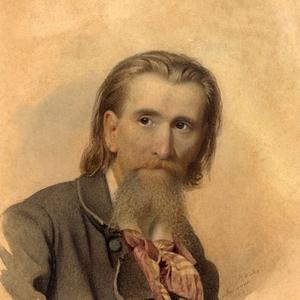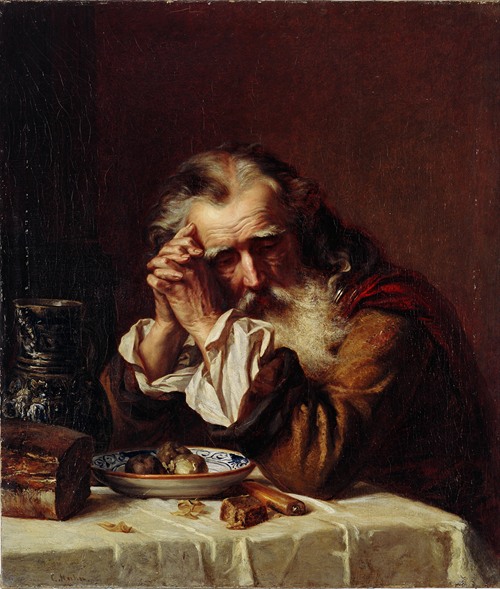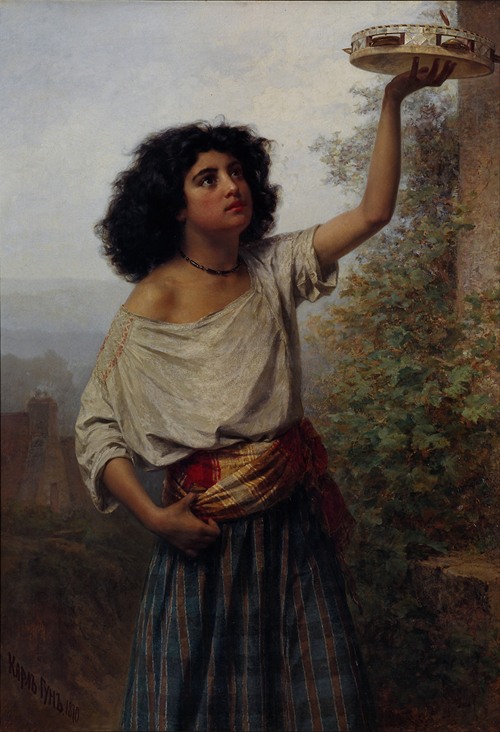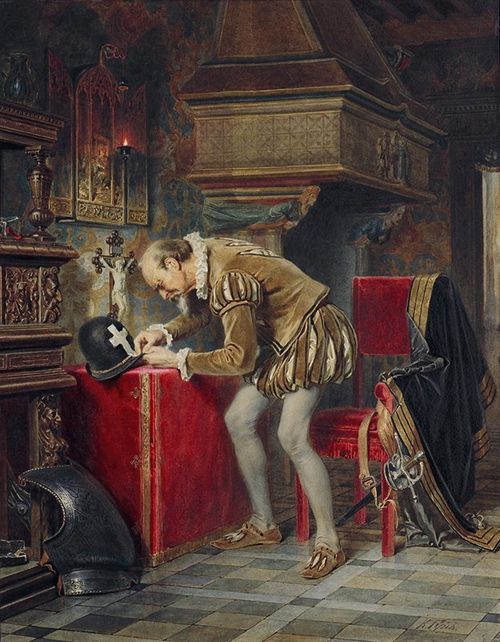

Kārlis Teodors Hūns
Kārlis Jēkabs Vilhelms Hūns, also known as Karl Jacob Wilhelm Huhn and Karl Theodor Huhn was a Baltic-German history, genre and landscape painter.
His father was a parochial school teacher and organist and he received his general education at the Lutheran School in Riga. In 1850, he went to Saint Petersburg to study drafting and lithography. While there, he began taking evening classes at the Imperial Academy of Arts and was admitted as a full student two years later. His primary instructor was Pyotr Basin. By 1859 the artist already competes for artistic awards. In 1861, he received the title of Artist First-Class and a gold medal. He soon began creating icons in the local churches (notably, the Cathedral of the Intercession in Yelabuga), as well as creating sketches of folk life on behalf of the Russian Geographical Society.
In 1863, he was awarded a fellowship that allowed him to travel in Germany, although he eventually settled in Paris and exhibited at the Salon in 1868. Upon his return to Saint Petersburg in 1872, he was named an Academician and later elevated to a professorship. Over the next few years, he finished work started in Paris and focused on paintings of a religious nature. He was also a member of the "Society of Travelling Art Exhibitions" (Peredvizhniki).
In 1874, he married Vera Monighetti, daughter of the architect Ippolit Monighetti. Unfortunately, that same year, he began displaying symptoms of tuberculosis. On the advice of his doctors, he sought out climates with fresher, healthier air than Saint Petersburg, but the disease progressed and, after living in several locations, he died in Switzerland, aged only forty-five.


